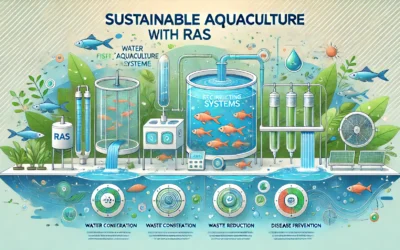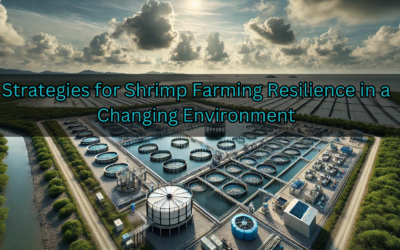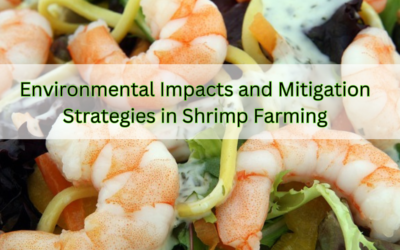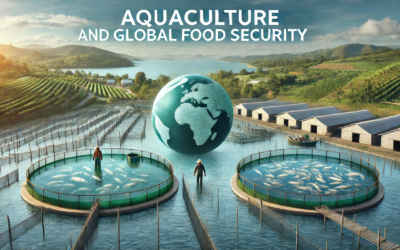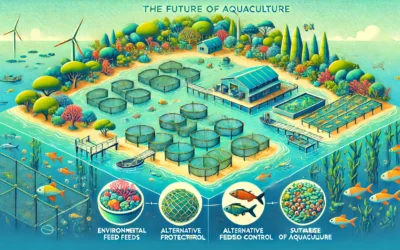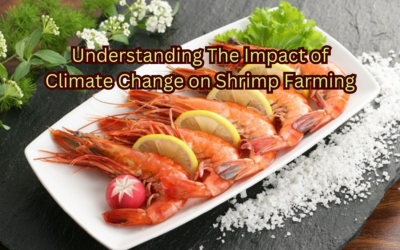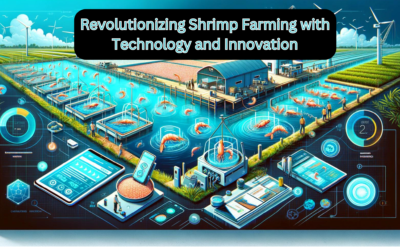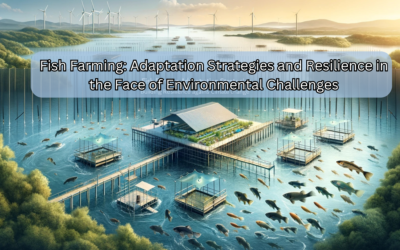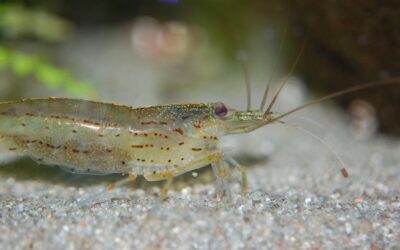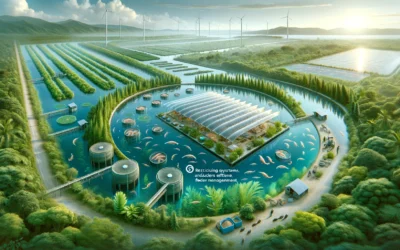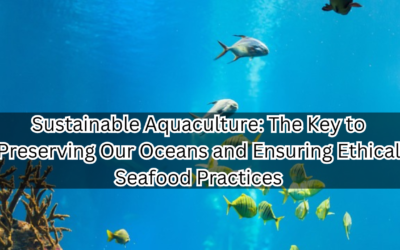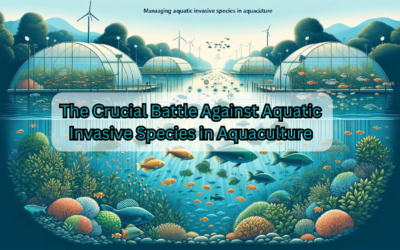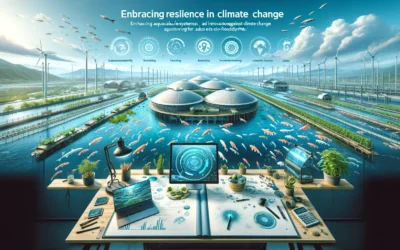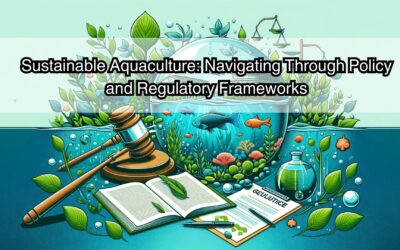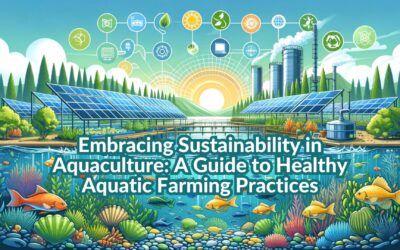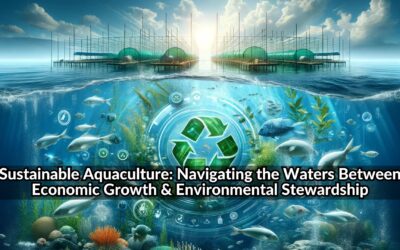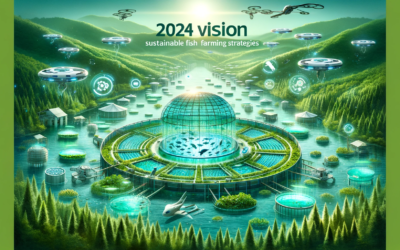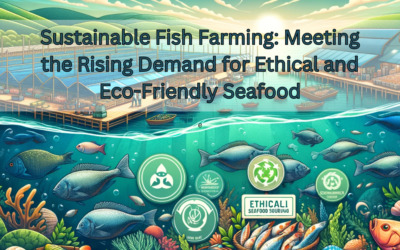Blog
The Role of Recirculating Aquaculture Systems (RAS) in Sustainable Fish Farming
Introduction to RAS Recirculating Aquaculture Systems (RAS) represent a groundbreaking approach to fish farming that addresses many of the environmental and operational challenges posed by traditional methods. In essence, RAS operates by continuously filtering and...
Strategies for Shrimp Farming Resilience in a Changing Environment
Shrimp farming is increasingly vulnerable to the impacts of climate change. Rising temperatures, sea level rise, and extreme weather events threaten the industry's sustainability. To ensure the long-term viability of shrimp farming, it is crucial to adopt resilient...
Environmental Impacts and Mitigation Strategies in Shrimp Farming
Shrimp farming has become an essential source of protein worldwide, especially in the subtropical and tropical lowlands of the United States and Asia. However, the explosive growth of shrimp farming has raised significant environmental concerns, such as habitat...
The Role of Aquaculture in Addressing Global Food Security
As our world population continues to grow, reaching an expected 9.7 billion by 2050, the issue of global food security becomes increasingly urgent. Ensuring that everyone has enough to eat is a monumental challenge, especially with diminishing wild fish sources,...
Sustainable Aquaculture: Five Critical Challenges and Solutions
Sustainable Aquaculture: Fish farming, also known as aquaculture, provides almost half of our seafood. This diverse industry is expected to become the major source of seafood globally. However, achieving sustainability in fish farming requires addressing several key...
Understanding The Impact of Climate Change on Shrimp Farming
Shrimp farming, a vital component of the global seafood supply, is increasingly threatened by climate change. In this blog, we will explore how climate change affects shrimp farming and discuss the adaptation strategies shrimp farmers can adopt to mitigate these...
Revolutionizing Shrimp Farming with Technology and Innovation
Shrimp farming is undergoing a major transformation thanks to technology and innovation. In this post, we'll explore the latest advancements in shrimp farming, their benefits, and the challenges farmers face in adopting these technologies. Discover how automated...
Fish Farming: Adaptation Strategies and Resilience in the Face of Environmental Challenges
Climate change is a pressing issue that impacts every sector, including fish farming. With rising temperatures, shifting precipitation patterns, and more frequent extreme weather events, the aquaculture industry faces significant challenges. However, fish farmers are...
Embracing Sustainability in Shrimp Farming: A Guide to Modern Practices
In the ever-expanding world of aquaculture, sustainability is no longer a luxury but a necessity. As global demand for seafood, particularly shrimp, continues to rise, the industry faces increasing pressure to adopt practices that minimize environmental impact while...
Embracing Sustainability in Shrimp Farming: A Step Towards Circular Economy
Shrimp farming stands at a crucial intersection of economic viability and environmental sustainability. As the aquaculture sector grows, the imperative to adopt sustainable practices becomes ever more urgent. This article explores how the industry is pivoting towards...
Sustainable Aquaculture : The Key to Preserving Our Oceans and Ensuring Ethical Seafood Practices
Sustainable aquaculture stands as a beacon of hope in the quest to balance our planet's nutritional demands with the imperative to protect its most precious resource: the ocean. In an age where environmental consciousness shapes the choices of consumers and producers...
The Crucial Battle Against Aquatic Invasive Species in Aquaculture
In the vast and dynamic world of aquaculture, a hidden threat lurks beneath the waters, challenging the stability and sustainability of aquatic ecosystems and the thriving industry dependent on them. This threat? Aquatic Invasive Species (AIS). These non-native...
Building Climate Resilience in Aquaculture: A Sustainable Future for Fish Farming
Climate Resilience: In the face of climate change, the global aquaculture industry faces significant challenges, including fluctuating water temperatures, dwindling water sources, and the increased frequency of extreme weather events. However, with adversity comes...
Sustainable Aquaculture: Navigating Through Policy and Regulatory Frameworks
Introduction In the rapidly expanding world of aquaculture, the importance of robust policy and regulatory frameworks cannot be overstated. As we strive to meet the soaring demand for seafood, it's crucial that we do so responsibly, ensuring the sustainability of our...
Embracing Sustainability in Aquaculture: A Guide to Healthy Aquatic Farming Practices
Sustainability in Aquaculture is a key focus of our guide, detailing essential strategies for maintaining healthy and environmentally friendly aquatic farms. The global demand for seafood is on an upward trajectory, highlighting the need for sustainable aquaculture...
Sustainable Aquaculture – Navigating the Waters Between Economic Growth & Environmental Stewardship
Sustainable Aquaculture is at the forefront of balancing economic growth with environmental conservation in the fish farming industry. This essential guide delves into the complex regulatory framework, challenges, and strategies necessary for achieving this...
Revolutionizing Aquaculture with Sustainable Fish Farming Strategies
As we navigate through 2024, the demand for seafood continues to rise, bringing with it an increased focus on sustainable aquaculture. The world's appetite for fish, a key source of animal protein, is growing, and aquaculture, or fish farming, has expanded rapidly to...
Sustainable Fish Farming: Meeting the Rising Demand for Ethical and Eco-Friendly Seafood
In the world of fish farming, a sea change is happening. As consumers become increasingly conscious about the environmental and ethical implications of their seafood choices, the industry is pivoting to meet these evolving preferences. In this blog, we dive into how...

